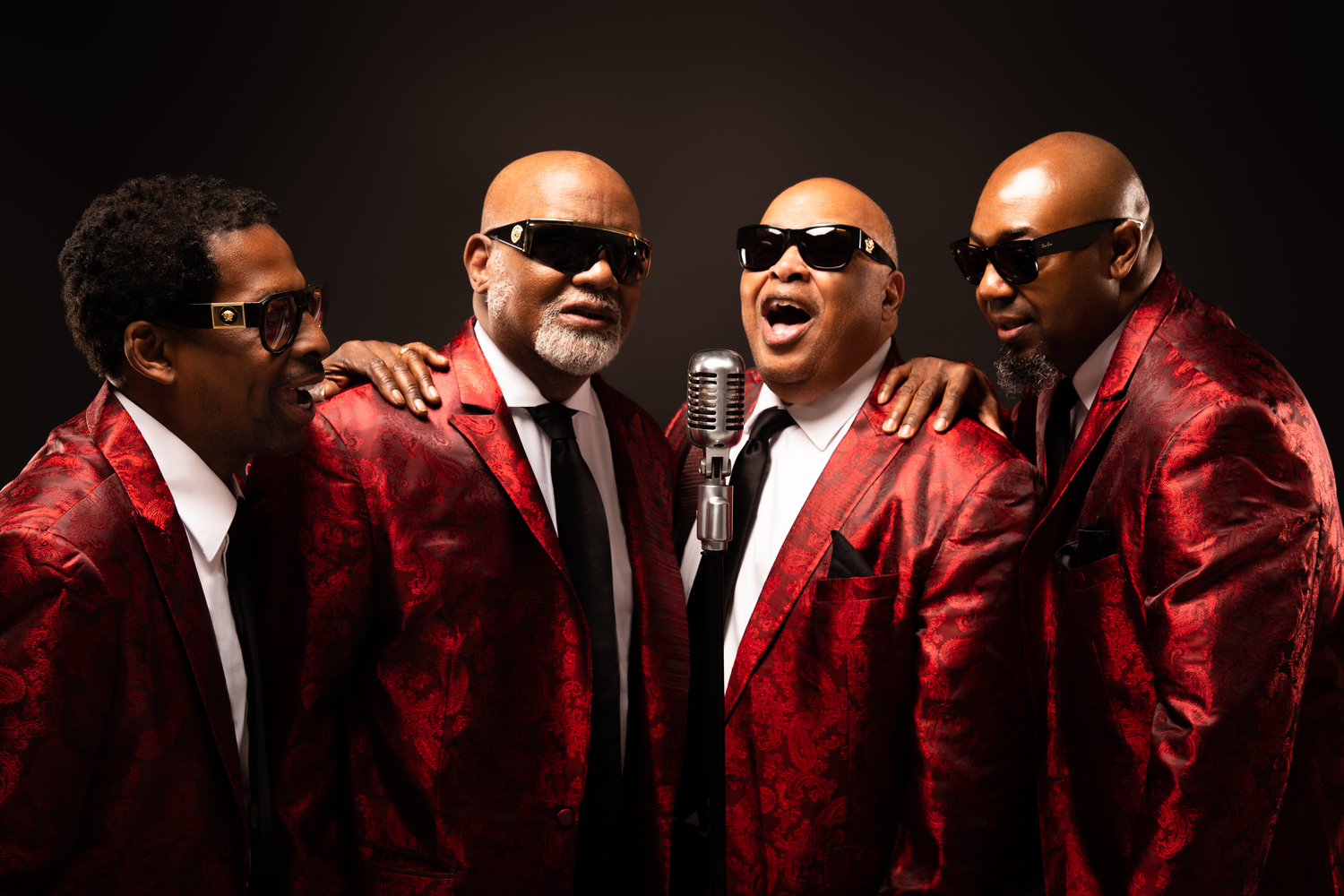
For Ricky McKinnie, the spirit of Christmas is not just a religious one.
It is about joy, he said, a celebration of coming together and enjoying one another. He feels it with his family and his friends, but also with his audiences year round — when he’s on stage performing with The Blind Boys of Alabama.
And though he cannot physically witness his fans — he lost his eyesight at age 23 — the now 72-year-old gospel singer can feel them.
“I’m not blind, I just can’t see,” he said. “I lost my sight but not my vision. I’ve always had a vision. I’ve always been a dreamer. And if you can dream the dream and do the work — and keep the faith — it usually works out fine.”
On Friday, December 6, the six-time Grammy Award-winning singing group will bring its annual Christmas Show to The Suffolk in Riverhead, mixing holiday standards like “Silent Night” and “White Christmas” with selections from their holiday albums “Go Tell It on the Mountain” and “Talkin’ Christmas.”
“We try to sing songs that’s from the heart,” he said. “And from-the-heart songs reach the heart.”
Sitting on his couch wearing a pair of sunglasses, McKinnie reflected on the holiday season from his home in Atlanta — the very same house where he grew up, which was always filled with the sounds of gospel music, courtesy of his mother, singer Sarah McKinnie Shivers. She performed with the likes of Gene Martin and Marvin Anderson, and she encouraged her son to sing in the church choirs she directed, and to take drum lessons throughout his education.
At age 4, she introduced him to The Blind Boys of Alabama — quite literally, though both their music and by him meeting one of the group’s founding members, Clarence Fountain.
“I love the Blind Boys. I love what they stand for. I love Clarence,” McKinnie said. “I’ve been knowing him all my life.”
The group’s roots predate McKinnie — to June 10, 1944, when six teenagers from the Alabama Institute for the Negro Deaf and Blind arrived at the headquarters of Birmingham radio station WSGN. For them, the station was not only a fixture for news and music but also a refuge from the harsh realities of the Jim Crow South, and a beacon of hope.
But on this particular afternoon, it was also the home of their broadcast debut, where they would perform professionally for the first time as, then, The Happy Land Jubilee Singers.
There, a music legend was born, spanning generations and racial divides, knocking down barriers from Carnegie Hall to the White House, as they helped redefine modern gospel music over the next eight decades.
And at age 23, McKinnie suddenly met the requirements to join the group.
It was 1975. Fresh off making a gold record, he was on tour with the Gospel Keynotes in Fort Wayne, Indiana, when his vision began to fade in and out, he recalled. He grabbed the guitar player’s arm, saying, “I can’t hardly see, let me hold onto you,” and they walked together.
“But that had happened before,” McKinnie said.
Diagnosed with cataracts as a boy, he underwent surgery for glaucoma right before the tour, he said, and was instructed to use his eye drops and take medication every day.
Admittedly, he didn’t.
“By not doing what I was supposed to do is what caused me to lose my sight,” he said. “So I don’t feel bad about it. I realized that, and I tell everybody, it’s up to you. You know that you know that you gotta do what the doctors tell you to do. I was just too busy being a young man — too busy.”
But he didn’t slow down — and he kept singing and playing the drums. In 1997, he took on the role of business manager for The Blind Boys of Alabama and, a year later, signed on as their drummer. By 2000, he was a featured singer.
“I’m a dreamer,” he said, “and I try to make dreams come true.”
The Blind Boys of Alabama will perform a Christmas Show on Friday, December 6, at 8 p.m. at The Suffolk in Riverhead. Tickets range from $59 to $89. For more information, visit thesuffolk.org.